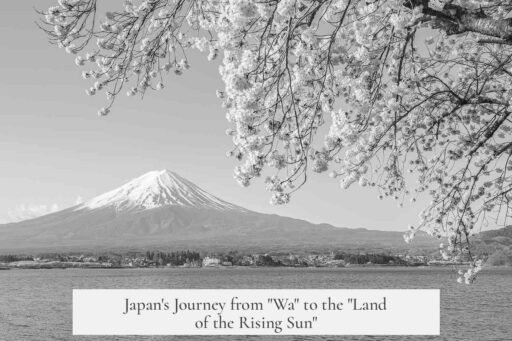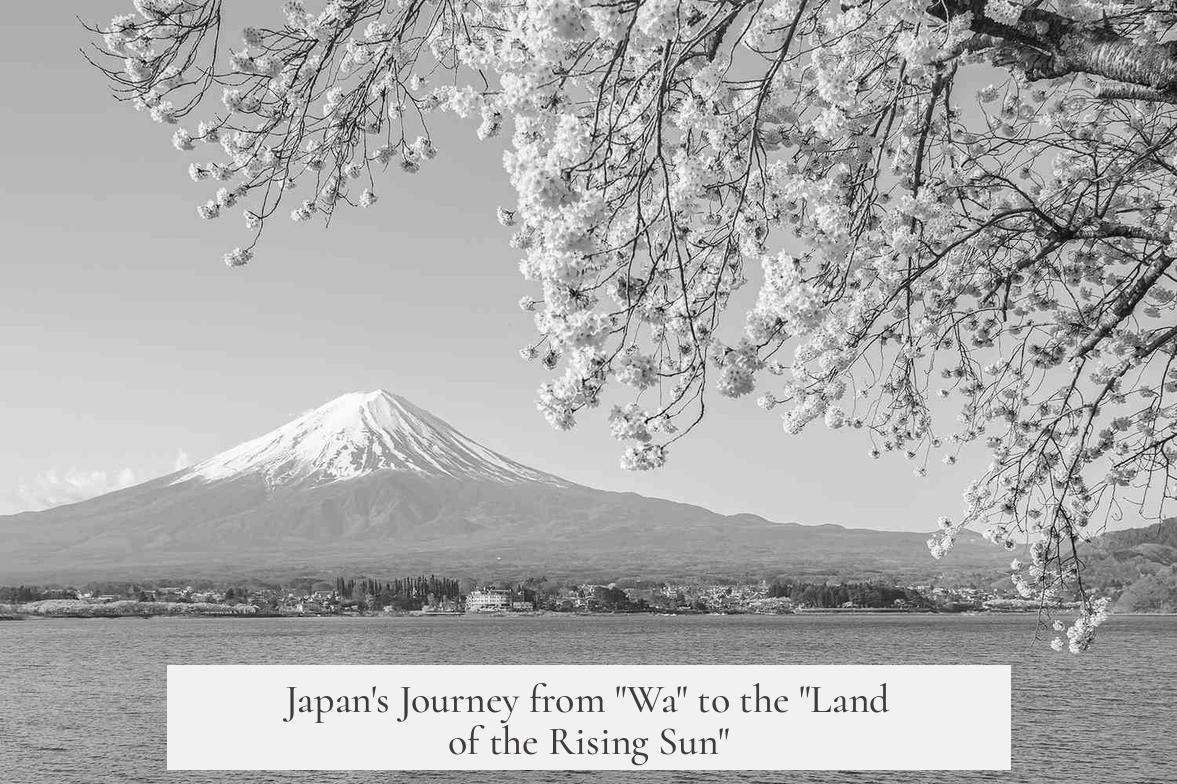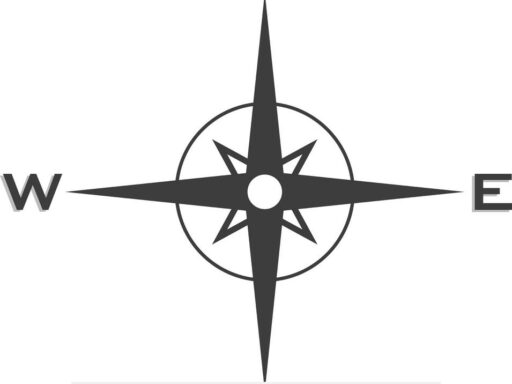Japan came to call itself the “Land of the Rising Sun,” a name derived from Chinese characters meaning “sun origin,” as a deliberate response to an earlier derogatory Chinese name and through complex diplomatic, cultural, and linguistic developments.
Originally, early Chinese dynastic records used the term Wa (倭) to refer to the Japanese islands and their inhabitants. This word had negative connotations, sometimes translated as “land of the dwarves” or “land of the stunted rice plants.” These meanings reflected a Chinese perspective that regarded Japan as a distant and subordinate land.
By the 7th century, the Japanese found the name Wa increasingly unacceptable. In 670 CE, a Japanese embassy arrived at the Chinese court to convey congratulations on a Chinese military achievement. Around this time, educated Japanese envoys—well versed in Chinese culture—chose to replace Wa with Nippon or Nihon (日本), which means “origin of the sun” or “sun’s root.”
The motivation for this change originated from Japan’s geographic position east of China, placing it “where the sun rises.” Japanese envoys explicitly stated this rationale when introducing the new name. One diplomatic message famously read, “The Son of Heaven of the land where the sun rises sends this letter to the Son of Heaven of the land where the sun sets.”
This communication carried political significance. According to historian Wang Zhenping, the Chinese Sui dynasty court accepted Japan’s self-description without protest. This acceptance effectively legitimized Japan’s assertion of sovereignty, establishing equality in diplomatic protocol between the two states—an unusual scenario given China’s traditionally Sinocentric worldview.
Beyond political strategy, the name Nippon resonated strongly within Japan for cultural and religious reasons. Indigenous beliefs held Amaterasu, the sun goddess, as a paramount deity and universe creator. This ancient sun worship imbued the rising sun with sacred meaning and national identity. Calling the country “the place where the sun rises” aligned with these spiritual values, enhancing the appeal of the new name.
Over centuries, the concept of Japan as the “Land of the Rising Sun” spread beyond East Asia. Early trade routes contributed to its diffusion into other languages. European explorers and traders—starting with the Portuguese—encountered the Japanese name through Chinese pronunciations like Cipan or Cipangu recorded by Marco Polo. These terms, derived from Nippon’s characters meaning “sun origin,” were adapted into European languages and eventually formed the English word “Japan.”
| Term | Meaning | Origin | Context |
|---|---|---|---|
| Wa (倭) | Land of the dwarves / stunted plants | Early Chinese records | Derogatory name for Japanese islands/people |
| Nippon / Nihon (日本) | Sun origin / Root of the sun | 7th century Japan | Self-adopted name emphasizing sunrise position |
| “Land of the Rising Sun” | Reference to Japan’s eastern location | Japanese diplomatic letters | Claim of sovereignty and equality with China |
| Japan (English) | Derived from Chinese pronunciation of Nippon | European transliterations via Portuguese | Modern English name for the country |
The shift from Wa to Nippon reflects Japan’s effort to reject foreign-imposed derogation and assert a proud national identity tied to sun symbolism. This renaming also corresponded with Japan’s rising political stature and desire for diplomatic recognition by the Chinese empire.
Japan’s sun-centered name received validation from its own cultural traditions and an unusual acceptance by China’s Sui court, which acknowledged Japan’s sovereign status at the time. Later, linguistic routes carried this nomenclature to the West, giving rise to the international term “Japan.”
- “Wa” was an early Chinese name with negative implications for Japan.
- Japan replaced “Wa” with “Nippon,” meaning “origin of the sun,” expressing pride and geography.
- Diplomatic exchanges in the 7th century showed Japan asserting sovereignty and equality with China.
- The sun god Amaterasu plays a central role in Japanese culture, reinforcing the sun-based identity.
- The English name “Japan” stems from Chinese pronunciations of Nippon, transmitted via trade and European contact.
How Did Japan End Up Calling Itself the “Land of the Rising Sun”?
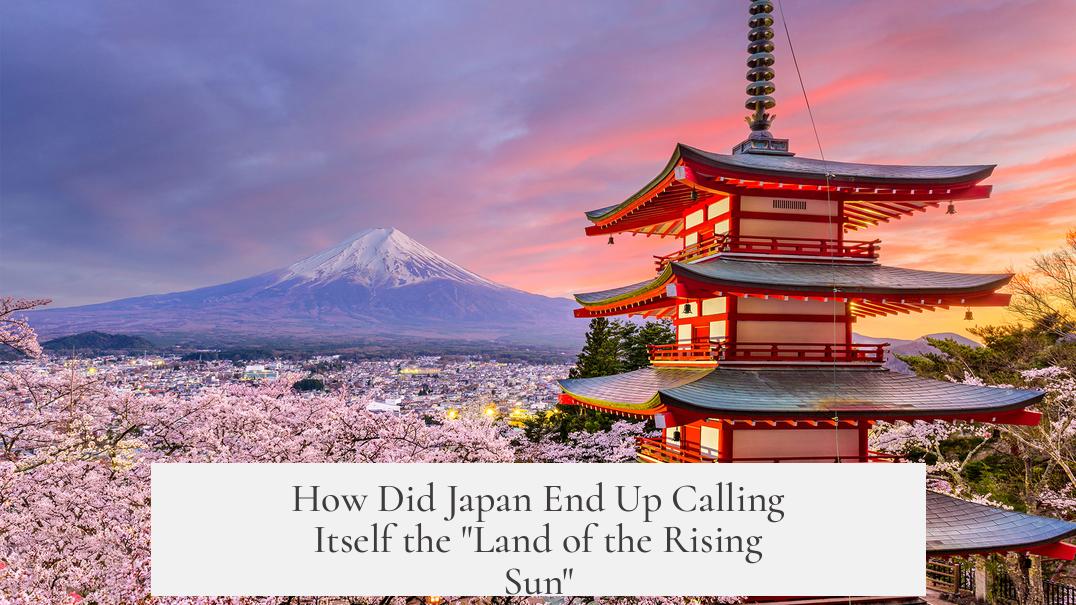
Japan calling itself the “Land of the Rising Sun” is not a random poetic choice but rather a purposeful rebranding rooted in history, culture, and diplomacy. The story behind this name involves a shift away from an earlier, less flattering Chinese term, intertwined with Japan’s geographical position and spiritual beliefs—and a dash of clever diplomacy thrown in for good measure.
Ready to unravel how Japan went from “Wa” to “Nippon,” and why it proudly embraces the sun’s rising rays? Let’s dig in.
The Not-So-Flattering Original Chinese Name: Wa (倭)
Long before Japan was the “Land of the Rising Sun,” it had a name that would raise eyebrows today— Wa (倭). This term appeared in early Chinese dynastic histories where the Japanese islands and their people were labeled as “Wa.” But hold on to your hats, because this was not exactly a compliment.
Wa roughly meant “land of the dwarves” or “land of the stunted rice plants.” Imagine being called a land of dwarfs as an oversimplified outsider’s term! This name not only sounded derogatory but also failed to capture the essence or grandeur of Japan as a nation.
No wonder the Japanese folks educated in Chinese grew tired of it.
Japan’s Diplomatic Rebranding: From Wa to Nippon/Nihon (日本)
Jump to 670 CE, the first year of Hsien-heng. An important embassy from Japan delivers congratulations upon the conquest of Koguryo to the Chinese court. But that year also marks a pivotal moment. The Japanese envoy announces a new name for his country: Nippon or Nihon, which literally means “origin of the sun.”
Why the switch? According to the envoy himself, they chose this name because Japan lies east of China, near the sun’s rising point. This marked both a political and cultural statement: Japan was no longer “Wa.” It was the place where the sun begins its journey—a poetic and geographically accurate nickname.
So was this just Japanese vanity or clever image management? Some say Nippon once was a smaller state conquered by Wa tribes causing historical confusion. However, this story seems more like a rumor, with the envoy’s sincerity pulling the weight for the sun-based identity.
A Bold Diplomatic Move: The “Land of the Rising Sun” Letter
Japan didn’t stop at brightening its name internally; it sent a diplomatic message to the mighty Sui Dynasty, saying:
“The Son of Heaven of the land where the sun rises sends this letter to the Son of Heaven of the land where the sun sets.”
This was a masterstroke, framing Japan’s ruler as an equal “Son of Heaven,” not some distant inferior. Chinese scholar Wang Zhenping suggests that the Sui court mistakenly accepted this, inadvertently legitimizing Japan’s bold claim to sovereignty and equality.
Imagine if you received a letter from the “land of the rising sun” claiming equal status—would you argue? Apparently not in this historic case. This diplomatic exchange gave official shine to Japan’s new self-designation.
Close to Home: Japan’s Indigenous Sun Worship
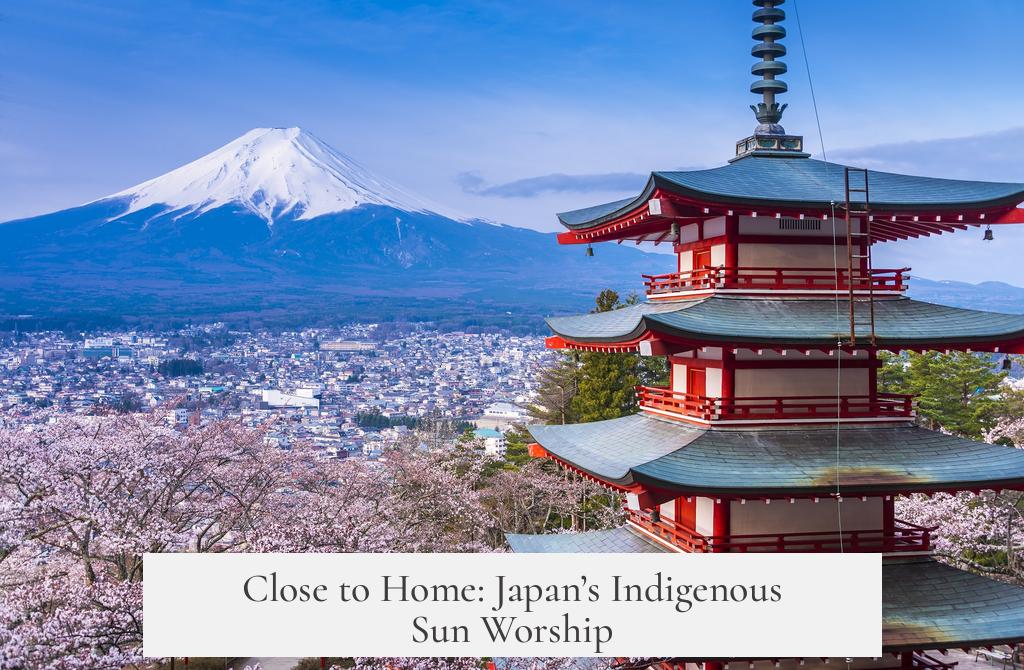
The sun runs deep in Japanese culture beyond politics. Their oldest religion worships Amaterasu, the sun goddess, considered the creator of the universe and ancestor of the imperial family.
Choosing “sun origin” as its name connected Japan’s geography with its faith and identity. It was more than a label—it was a cultural badge worn with pride.
This intimate link made the name Nippon deeply appealing on a spiritual and societal level.
From East Asia to Europe: How “Japan” Crossed Oceans
Ever wondered how the English word Japan came to be, given the local name is Nippon? That journey is a linguistic adventure.
- Marco Polo recorded Japan as Cipangu, deriving from early Chinese (Mandarin or Wu dialect) pronunciations of 日本.
- Trade languages like old Malay rendered it Jepang, borrowing from Chinese.
- Portuguese traders brought back these forms to Europe, which gradually morphed into “Japan.”
This circuitous route highlights how China’s “sun origin” characters influenced not only Japan’s self-identity but even Western naming conventions.
Summary: From Wa to the Land of the Rising Sun
| Stage | Explanation |
|---|---|
| Chinese Name Wa (倭) | A derogatory term meaning “dwarfs” or “stunted plants,” reflecting outsider bias. |
| Japanese Adoption of Nippon/Nihon (日本) | A positive self-name meaning “origin of the sun,” playing on Japan’s eastern location. |
| Diplomatic Messaging | Japan’s letter to the Sui emperor asserts sovereignty and equality using sun imagery. |
| Indigenous Sun Worship | Amaterasu’s myth strengthens cultural acceptance of the sun-based name. |
| Global Linguistic Spread | Chinese terms influenced trading languages and eventually European ones, giving us “Japan.” |
And there you have it. Japan’s journey to calling itself the “Land of the Rising Sun” isn’t just a poetic flourish. It’s a strategic, cultural, and diplomatic evolution that reflects its geography, spirit, and savvy interaction with neighboring powers.
Next time you see the kanji 日本 or hear “Nippon,” remember there’s a story behind those characters—a story of pride, identity, and a daybreak that changed the name of a nation.
Thinking about Names?
Does your nation’s name tell a similar story of self-assertion or cultural identity? How powerful is a name when it can reshape how the whole world views a place? It’s worth pondering.
